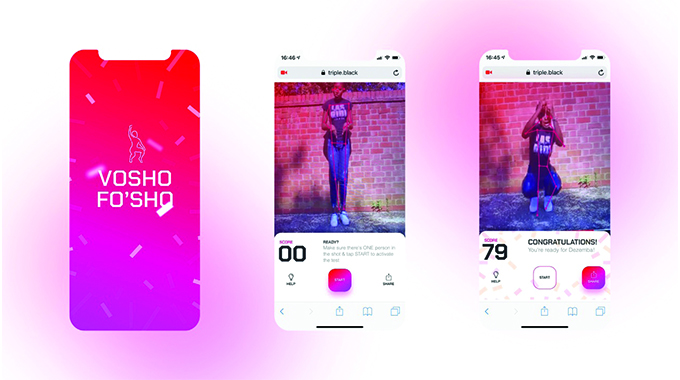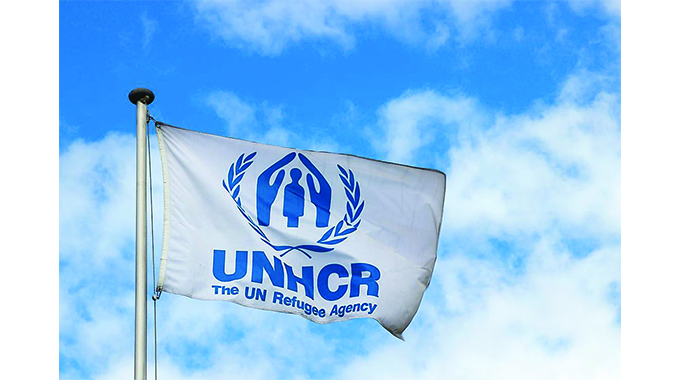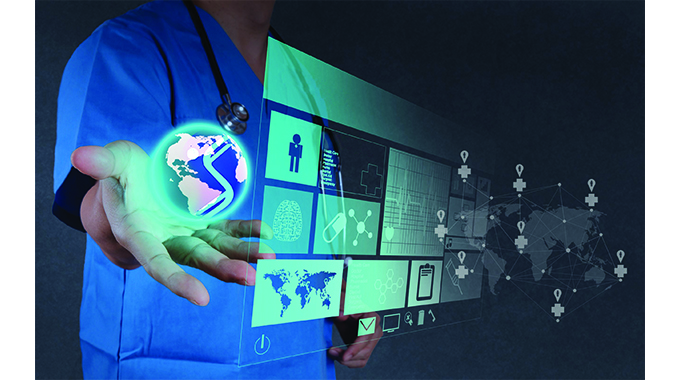The Chronicle

Thandeka Moyo-Ndlovu, Senior Reporter
HE grew up in Bulawayo’s Greenhill suburb, never went to university but after teaching himself to code, he created the world’s first artificially intelligent football commentator and ended up landing a job in the Netherlands.
The Zimbabwean developer also developed a Qgom and Vosho app and also worked with UNHCR to predict the movements of displaced people.

Born the middle child in a family of five and raised by a single mother, lack of funding to pursue a law degree meant that his highest level of education was a high school certificate, attained at Founders High School.
From doing nine different jobs to make ends meet, Babusi Nyoni (34) eventually taught himself how to code.
In just one year, he landed a job in the Netherlands and now remains one of the most decorated innovators.
His journey started off at Tshaka’s Communications in Bulawayo’s city centre where he worked as an internet cafe assistant before venturing into household painting since he had no professional qualifications.
At one time he was a wedding photographer for a local studio and went on to join a security company as a company coordinator.
He also became an electrician, a travel agent until he moved into graphic designing, a skill he used to get himself a job in advertising in Cape Town, South Africa.
His designs were misinterpreted in the development stage and this frustrated him into teaching himself to code.
Mr Nyoni’s major goal was to reimagine the technology in ways that would fit a different context, particularly an African context.
Soon he had mastered development languages php, JavaScript and Python which landed him on his first job after creating an artificial intelligent soccer commentator ‘Banternator’ for the 2016’s UEFA Champions League final for Heineken.
This breakthrough was all he needed to get a job in the Netherlands where he has been living since 2017.
“I am proudly from Bulawayo and actually went to Henry Low Primary School where I studied until I went to Founders for secondary.
I didn’t go to university after school but worked in more than eight places until I moved to South Africa,” he said.
“When I got to South Africa, I started working in advertising and that is when I taught myself how to code and eventually made a name for myself after the Heineken gig.
 UN Refugee Agency
UN Refugee AgencyIn the same year, I caught the eye of many people globally and I went to give a TedEx talk about how I use part of that football ball commentator to build a new system that helps predict Africa’s next refugee crisis with the UN Refugee Agency.”
He said after that, a technology company in the Netherlands head hunted him and offered him a job, and that is how he relocated.
“I moved to Amsterdam in 2017 and while I was there, I took advantage of the work life balance and started exploring ways that I could use technology to benefit my community in Africa.
I then came up with a dance app that uses computer vision to rate the Vosho dance move and we did this in 2018.
This dance app eventually turned into an application to diagnose Parkinson disease in partnership with Ekuphumuleni Old People’s Home in Mzilikazi,” he said.
This innovation earned him and Ekuphumuleni’s sister-in-charge a trip to a Google Conference in California, USA.

Following up on this experiment, he wondered how he could use technology to increase access to health care in Africa.
“We then created a robot and trained it to interact with people from Bulawayo to analyse symptoms.
The chart chat board was trained to understand how people in Zimbabwe speak about their diseases and symptoms.
For example, someone in the global north always speaks about a stomach ache but someone in Bulawayo will say isisu sami sibuhlungu, to describe the same condition.
This was after I realised that most of the technologies were built around Western world and we had nothing created with us in mind,” said Mr Nyoni.
The chart board named Sis Joyce, in form of an application called Sila Health, was launched in 2019 in eight countries namely Zimbabwe, South Africa, Zambia, Kenya, Nigeria, Ghana, Malawi and Uganda
“Within months, it was available in over 50 countries as people discovered it was very helpful.
This was a fulfilling experience – an innovation which was built at grassroots level finding context at a global level.
This application took off well and we started thinking of how to connect people speaking to our chart board to doctors and then explored partnerships with doctors on the ground.
We have a team of three co-founders, all from Bulawayo which includes Phillen Maqhuzu and Dr Chipunza,” he said.
Mr Nyoni was recently home to launch their medical centre which will cater for the growing Sila Health clients.

“In analysing our data, we discovered a lot of the people were not willing to pay for private health care and their needs were paid for by relatives in the diaspora.
We then created health cards where instead of sending money monthly for healthcare, clients pay a monthly subscription and then have access to doctor’s consultation, free delivery of prescribed medication, which is all done through the application.”
The facility was launched last April.
“When I moved to Europe, I was exposed to a lot of conversations around technology but it became apparent that the people who live where I come from would benefit from the same technology last.
We were getting hand me down systems and technology just the camera which was initially designed to capture white skin and bounce light off white skin” he said.
“So, from 2018, I started building things that use the latest version of imaging and put them in very colloquial settings for Africa.
The Vosho dance rating app was the first ever that existed in the world.
I also realised that Google does not have much to offer for black women in terms of hairstyles.”
The popularised dance called the Vosho can be described as a South African dance that involves squatting and kicking at the same time.
More recently in 2020, he built the first learning machine model that can classify black women’s hairstyles that gives black women hair tips depending on the weather forecast.
Sila Health, which has been the most successful, has been awarded by the Partos as the Most Inspirational Digital Innovation.
Mr Nyoni has also been recognised by the UNDP as an African Influencer for Development.
He was also a 2021 Zim Achievers Business Innovator of the Year Nominee.
During his spare time, Mr Nyoni, who is single, enjoys playing tennis and is Deejay Qgom in the Netherlands and South Africa when he visits.
To discouraged Zimbabweans struggling to find their feet, Mr Nyoni had this to say:
“I read a lot around technology and I think because I did not go to schools for this, I remain open minded and I grasp easily.
As someone who grew up in Africa, specifically in Zimbabwe, problem solving is just an extension of how we live. You cannot be able to solve problems here, you just have to.
If there is no electricity you have to make a plan, if the network is slow, you just refresh, change settings etc you just learn things because you have to problem solve just as an extension of your existence. Technology is the way to go and all we need to offer this world solution which is very possible through technology.”
– @thamamoe
Article Source: The Chronicle
